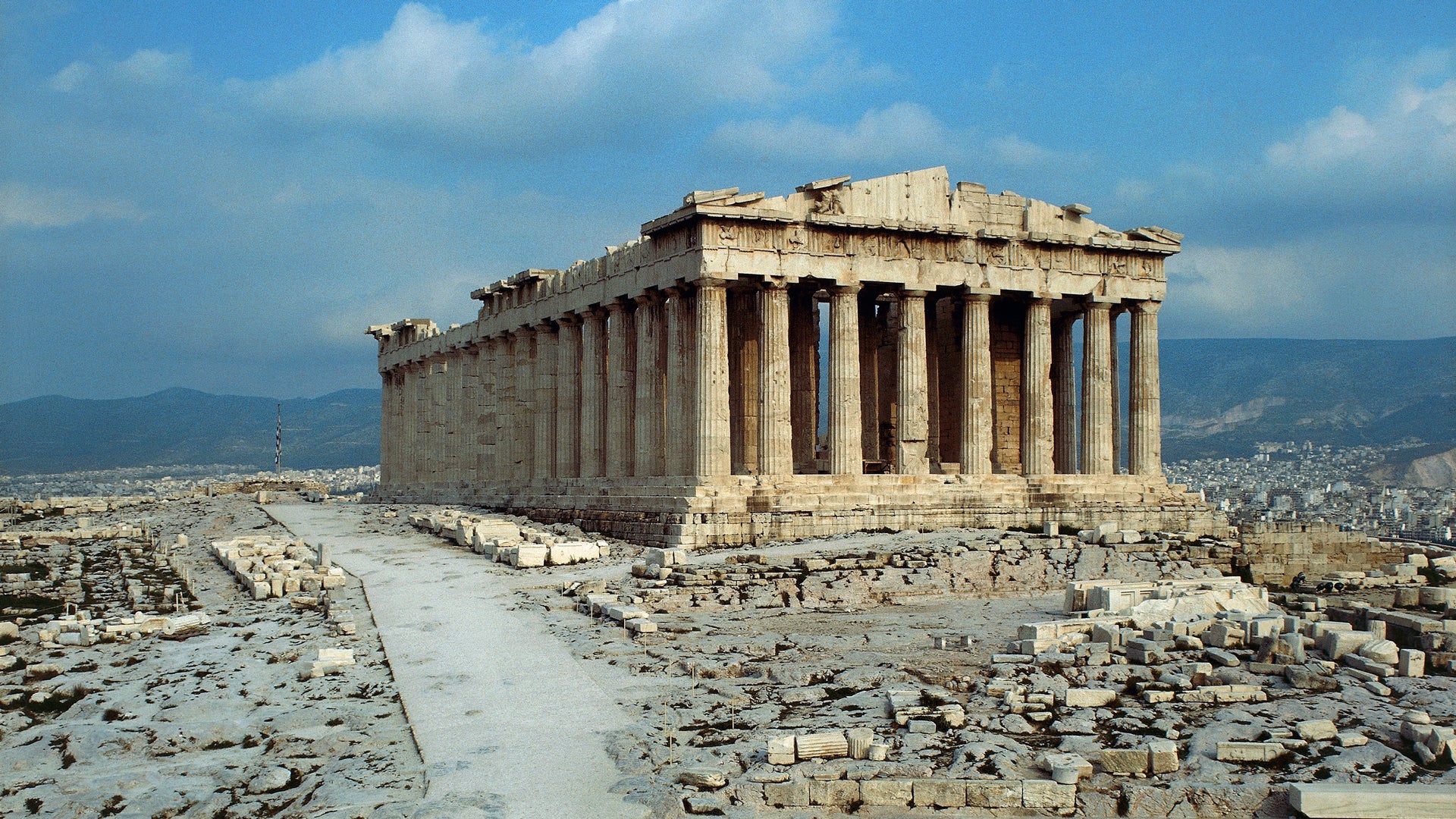
1.8 Greek Civilisation
Ancient Greek civilization flourished from the period following Mycenaean civilization, which ended about 1200 BCE, to the death of Alexander the Great, in 323 BCE. By that time, Greek cultural influence had spread around the Mediterranean and, through Alexander the Great's campaign of conquest, as far afield as India.
It is estimated that the Greek islands have been inhabited since the Neolithic Period, approximately 6000 B.C to 2900 B.C., and earlier, many pieces of evidence to the origins of ancient Greece have been uncovered
The Ancient Greeks practically invented Western culture. So many aspects of our modern lives are owed to things first created over 2,000 years ago; just take a look at the items below to see what ideas our ancient Hellenic friends thought up that are still important to us today.The Ancient Greeks practically invented Western culture. So many aspects of our modern lives are owed to things first created over 2,000 years ago; just take a look at the items below to see what ideas our ancient Hellenic friends thought up that are still important to us today.
The Birth of the City-State
During the so-called “Greek Dark Ages” before the Archaic period, people lived scattered throughout Greece in small farming villages. As they grew larger, these villages began to evolve. Some built walls. Most built a marketplace (an agora) and a community meeting place.
They developed governments and organised their citizens according to some sort of constitution or set of laws. They raised armies and collected taxes. And every one of these city-states (known as poleis) was said to be protected by a particular god or goddess, to whom the citizens of the polis owed a great deal of reverence, respect and sacrifice. (Athens’s deity was Athena, for example; so was Sparta’s.)
1. Western Philosophy
Socrates. Plato. Aristotle. These men are household names for a reason: they were all ancient Greeks who created systems of thoughts and reasoning that still largely govern the way we think today.
2. Olympics
The Olympic games first began on the island of “Pelops” in the western Peloponnese in 776 BCE. The games were begun as a tribute to the Olympian gods but were banned by Emperor Theodosius in 393 CE as part of a decree against “pagan cults
Albertville 1992, winner’s medal, gold (From the collection of The Olympic Museum)
3. Marathon
Like the Olympics, the Marathon is another modern sporting event with its roots in ancient Greece (although the marathon is clearly more pervasive and frequent). The story goes that the very first marathon actually ended in tragedy, when, in 490 BCE, the Greek runner Pheidippides ran 25 miles from the plains of Marathon, in Greece, to Athens, to deliver the news that the Greeks had defeated the Persians in battle. After reaching his destination, he then promptly dropped dead after uttering the single word “Niki!,” or “Victory”.
Alarm clock, ca. 2000 (From the collection of The Strong National Museum of Play)Remember those ancient philosophers? Well, apparently, Plato can be credited with inventing the first alarm clock: a funnel/syphon system that whistled like a tea kettle, created to wake up his sleepy-headed students. But it is the Greek mathematician and engineer, Ctesibus, who perfected the idea, modifying a water clock so that pebbles dropped on a gong at regular intervals. These laid the groundwork for the little device we all love to hate.
4. Umbrellas
Though the word umbrella has its roots in the Latin “umbra,” which simply means “shade,” we actually have the Greeks to thank for this handy little invention that keeps us out of the rain and sun. There is archaeological evidence suggesting both the Chinese and the Egyptians played a role in perfecting the parasol (technically, the word “parasol” denotes protection from the sun, while the word “umbrella” has typically been reserved for the thing that keeps you dry)
Cartogr
5. Cartography (Maps)
If, by this point in the list, you’re asking yourself, “where would we be without the ancient Greeks?” In the case of cartography, the answer is “extremely lost.” Though the idea of marking one’s location on paper or stone seems pretty simple, it turns out the Greeks beat most people to the punch when it came to map-making as well. Anaximander (born around 610 BCE) is mentioned in the works of Aristotle as being the earliest cartographer to put pen to “papyrus” (Egyptian paper) to make a map of the world.
6. Western Theater (Drama)
Like Philosophy, we have the Greeks to thank for the great tradition of dramatic theatre with which they’ve graced our stages. Though dramatic traditions pre-date the Greeks, modern theatre as we know it can be traced back to the dramatic genres that emerged in the ancient city-state of Athens. Early actors would wear masks and perform alone, and eventually with a chorus to entertain audience
